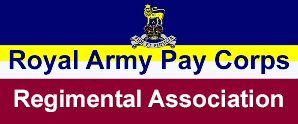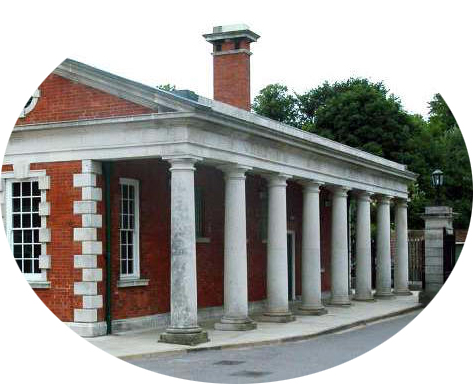
RAPC Virtual Museum

FIRST WORLD WAR
Background
The period before the First World War was one of increasing tension between the European powers. The decay of the Turkish Empire had been the cause of many, with various parts of the Empire snapped up by the major powers, while in the Balkans the Turks had been forced back almost to the gates of Constantinople. A second cause of friction was the perceived decay of the Hapsburg Dual Monarchy of Austria and Hungary, when the majority of Slavs agitated for either independence, or a greater role in government, while the Austrian and Hungarian elites held out for the statue-quo, led by the elderly Emperor, Franz-Joseph, a force for autocracy and tradition. Austria's main ally was the recently unified Germany, always worried about potential Russian gains as Austria weakened, especially in the Balkans. The Germans were also engaged in a naval arms race with Great Britain, which in turn moved Britain closer to France, and thus to her ally Russia. Despite all of the potential causes of tension, Europe in 1914 looked to be more peaceful than for some years. However, on 28 June 1914, the Archduke Franz Ferdinand, heir to the Austrian throne, was shot and killed by Gavrilo Princip, a Serb terrorist, while visiting Sarajevo. The mood in Austria was already hostile towards Serbia, and now it turned towards war. The Austrians were certain that the Serbian government had been in some way involved in the murder, and while it is not certain how far that was true, the leader of the terrorists was also head of Serbian Intelligence.
On 23 July, Austria delivered a note to the Serbia government that, if agreed to, would have almost ended Serbian independence. This ultimatum included ten points. The Serbs only completely rejected one of the points, which called for Austrian officials to take part in the Serbian investigations into the assassination. The official reason was that this wasn't allowed by the Serbian constitution but there was also a fear that the links between some in the government and the assassins might be uncovered.
Some of the other nine points were accepted without any conditions, but in other cases they only partly accepted the Austrian demands, in particular requiring proof where the Austrians expected unconditional obedience to all future demands about anti Austro-Hungarian propaganda or the removal of named individuals from public service. Some of the Serb conditions look perfectly reasonably, but others could easily have been used to negate the agreement - previous Serbian promises to stop anti-Austrian propaganda or arms smuggling into Bosnia hadn't had much effect. In any case the Austrians had already decided that only an unconditional acceptance of their ultimatum would be acceptable. When the Serbs handed over their reply the Austrian representative handed over a pre-prepared message refusing to accept their limits. On 28 July 1914 the Austro-Hungarian Empire declared war on Serbia.
Now the alliance system swung into play. On 30 July, Russia started mobilisation. In reaction, Germany declared war against Russia on 1 August. On the next day, Germany invaded Luxembourg, and demanded free passage across Belgium. On 3 August, Belgium refused the German demand, Germany declared war on France, and Britain pledged to support Belgium. On 4 August a British ultimatum to Germany was refused, and Britain declared war on Germany, while Germany declared war on Belgium, and launched an invasion of Belgium. Finally, on 5 August Austria declared war on Russia, and the First World War had begun.
